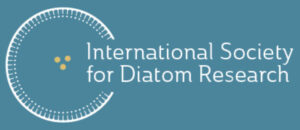For much of the global population, climate change appears as a slow, gradual shift in daily weather. This leads many to perceive its impacts as minor and results in apathy (the ‘boiling frog’ effect). How can we convey the urgency of the crisis when its impacts appear so subtle? Here, through a series of large-scale cognitive experiments (N = 799), we find that presenting people with binary climate data (for example, lake freeze history) significantly increases the perceived impact of climate change (Cohen’s d = 0.40, 95% confidence interval 0.26–0.54) compared with continuous data (for example, mean temperature). Computational modelling and follow-up experiments (N = 398) suggest that binary data enhance perceived impact by creating an ‘illusion’ of sudden shifts. Crucially, our approach does not involve selective data presentation but rather compares different datasets that reflect equivalent trends in climate change over time. These findings, robustly replicated across multiple experiments, provide a cognitive basis for the ‘boiling frog’ effect and offer a psychologically grounded approach for policymakers and educators to improve climate change communication while maintaining scientific accuracy.






